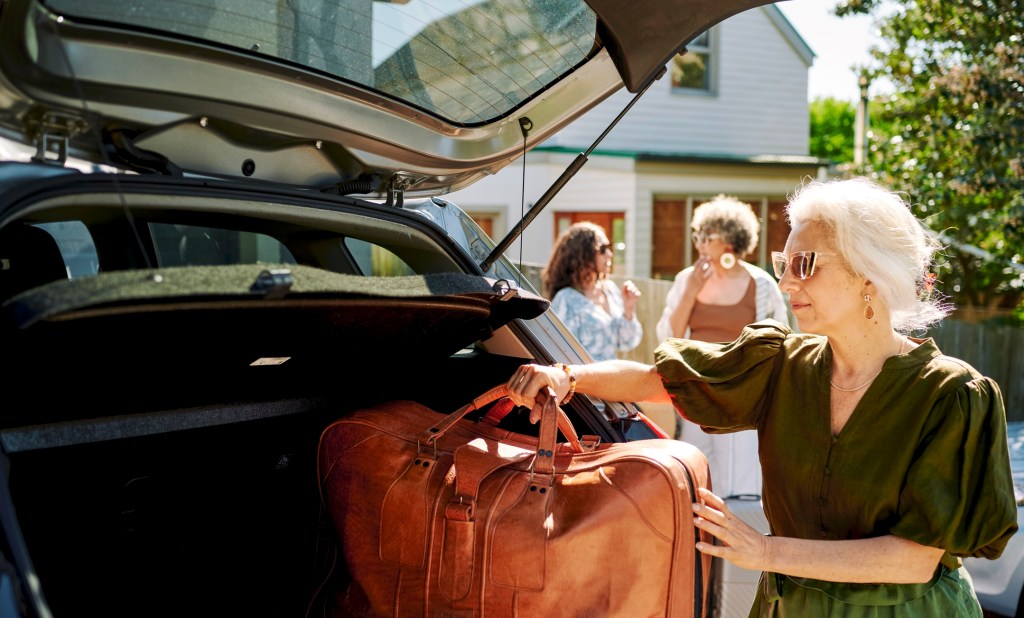Whether it’s at an all-inclusive resort in the tropics or a cozy cabin in the woods, we all have an idea of what our dream vacation would be. But not only are these types of trips fun to fantasize about, they’re necessary to take. Decades of research has proven vacations are essential for good health, personal development, and strong relationships.
That said, finances, work, and other hurdles can make it challenging to get away for more than a couple of days. Fortunately, that’s all you need to give your body a much-needed boost. In fact, some experts say short breaks may be even more beneficial than longer trips (though we encourage taking those when you can, too). Here are a few ways in which hitting the road this weekend could benefit your well-being.
Boosts Creativity and Productivity
Three-day weekends are the perfect opportunity for a short getaway and, according to research, may boost your performance upon returning to work. A 2022 pilot study in the United Kingdom showed workers and employers benefited from a four-day workweek, which can improve productivity, health and well-being, and life satisfaction while reducing stress, burnout, and turnover. Programs in other countries, such as Ireland and Spain, have produced similar results. Even if you can’t have a three-day weekend every week, making the most of those you do have can yield tremendous benefits.
Other research indicates vacations, even short ones, can boost creativity as well, according to the Harvard Business Review. In fact, Lin-Manuel Miranda got his inspiration for the Broadway hit Hamilton while on vacation. “It’s no accident that the best idea I’ve ever had in my life — perhaps maybe the best one I’ll ever have in my life — came to me on vacation,” he told HuffPost. “The moment my brain got a moment’s rest, Hamilton walked into it.”
Improves Your Mood

Feeling stressed or overwhelmed — whether with work, world events, personal challenges, or all of the above — can affect your mental and emotional health. Over time, this can lead to or exacerbate issues such as fatigue, burnout, depression, anxiety, and poor sleep, according to the Mayo Clinic. Taking a break can provide time and space to relax and do things you enjoy, which research suggests may boost your mood and improve your emotional well-being.
However, the benefits don’t always last long after you return home. In this regard, taking more frequent, shorter trips, such as going to the beach or camping on a three-day weekend, may even be more beneficial than longer getaways. A 2021 study found short breaks were just as restorative as longer trips and may be even better for recovering cognitive capacity.
“From an emotional and well-being perspective, smaller vacations pack a bigger punch than longer ones,” Jonathan Alpert, a psychotherapist in New York City, told U.S. News and World Report. “A small amount of planning and time away can reap large rewards.”
Gives You Something to Look Forward to
Knowing you’ll soon be on vacation can make it much easier to get through tough days. Research has found that anticipating a break provides even more happiness than a getaway. Although big trips are exciting, taking small breaks gives you more to look forward to throughout the year, which Alpert says is an important facet of emotional health.
“So much of what brings happiness and pleasure to people is being able to plan and look forward to creating memories,” he told NBC News. “If you have more of those in a given year, it’s only going to help people to feel happier.”
Bolsters Physical Health
What benefits the mind often benefits the body, and that includes short getaways. Research shows people with good emotional health are usually physically healthier and have fewer problems such as gastrointestinal issues, heart conditions, and chronic pain.
Plus, weekend trips can provide more opportunities to be physically active, whether swimming, cycling, hiking, or exploring a new city on foot. Exercise is essential for maintaining overall well-being and may reduce the risk of several chronic conditions, including high blood pressure and heart disease, according to Johns Hopkins.
Given all of that, it may not be too surprising that research suggests people who take a vacation biannually versus once every six years, may be less likely to have coronary heart disease or heart attacks, according to the The New York Times.
Nurtures Your Relationship

Research shows experiencing new things together is one of the best ways to strengthen and maintain a lasting relationship. However, amid careers and other obligations, it may be hard to carve out quality time with your significant other during the week. A weekend getaway is an excellent opportunity to connect, nurture your love, and create lasting memories.
Although it may seem counterintuitive, taking a short break away from your partner can enhance your relationship, too, April Masini, a relationship advice columnist, told U.S. News & World Report. “Working on the theory that absence makes the heart grow fonder, getting away for a short weekend vacay without your romantic partner is a great relationship booster,” she said. “You get a chance to miss each other. You get a chance to explore your own interests.”
Staycations Are Great, Too
If an out-of-town trip isn’t feasible, don’t worry — a staycation can also be beneficial. A 2012 study suggests your experiences are more important than the location or duration of your trip, meaning activities like relaxing in the park, hiking local trails, or a spa day with friends can all provide much-needed rejuvenation.
Plus, research from the UCLA Anderson School of Management suggests treating weekends like vacations can help you feel happier and more satisfied, even if you don’t leave town or splash out. “Treating the weekend like a vacation activates a mindset shift — nudging us out of our constant doing mode, where our activities are items we’re trying to get through to check off our to-do lists,” Cassie Holmes, a professor at UCLA and study co-author, told The Washington Post. “The vacation mindset allows us to feel like we can actually take a break and enjoy the moment.”
According to the researchers, you could even reap some of the benefits of vacation from the comfort of home — as long as you get in the mindset. Though the authors did note that taking actual vacations is “important,” the results “suggest that directing attention to the present was most important for reaping emotional benefits from time off.”












